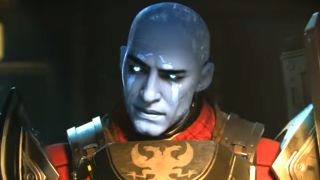Destiny 2’s enemies are heavily inspired by real ancient civilisations and hold clues to future DLC
The names of each enemy species’ classes, whether it’s Acolytes or Vandals, refer to real-life ancient civilizations that tell us a lot about how Destiny 2’s aliens see themselves.
As you’re reading this I’m guessing that you’ve already pumped Destiny 2’s aliens full of bullets. Either that, or you’re just really into history. While these creatures solely populate virtual space and are unlikely to visit/invade/maul us in real life (you might want to say a quick prayer of thanks for that, by the way), their origins aren’t nearly as fictional. Their roots in ancient civilisations tell us a lot about their fascinating lore, how each species sees themselves, and where their storylines could be heading in Destiny 2. The story of the Fallen might even make you shed a tear. Maybe.
Read more: Destiny 2 guide: complete campaign walkthrough and guides for how to save the Traveler
Vex
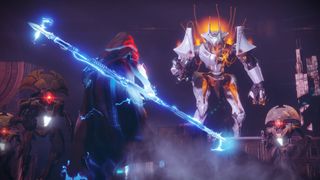
The civilization: Ancient Greece - namely, its mythical monsters and fame
What makes them so similar?
The Vex are perhaps Destiny’s most ingenious creatures. At first they look like robots. But even the most eccentric engineer couldn’t create these beings. See, Vex don’t have brains but milky-white cores composed entirely of radiolaria, a mind-fluid which their collective consciousness inhabits. Yet even though their insides are the same, every Vex has a wildly different outer shell and function - with each one named after different Greek mythological monsters.
You have the Goblins and Hobgoblins, Harpies, Minotaurs, Hydras, Cyclops, Gorgons and - right at the top - Oracles. These creatures litter ancient Greek myth. For the Vex, this goes far beyond wanting to intimidate their enemies by naming themselves after legendary monsters. To be honest, being associated with ancient Greece proves the Vex are kind of full of themselves, as the civilisation is famous for its contribution to the arts and historic feats. Yet for these robots such comparisons go far deeper than ego. These aliens are similar to Ancient Greece in that each one sees themselves as the ultimate, impeccably elegant civilisation. How could an alien race that cultivates pristine planets think they could ever reach such lofty heights as Greek myth, you ask? By making everyone conform to their ‘pattern’, of course! In their milky-white minds the Vex are perfection exemplified, and eliminate anything that doesn’t conform. In their eyes, they’re basically gods.
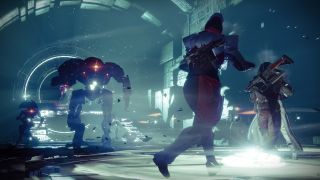
I’d think I was above mere mortals too if I could create a parallel reality in my head where my enemies’ every move was envisioned. Like the Ancient Greek’s penchant for creating wild myths full of feats of the imagination, the Vex have a similar approach towards deciphering what their enemies might be up to. As discovered by the Ishtar Collective, the Vex continually run simulations in their heads where they predict their foes’ strategy, playing out the various alternate realities to learn from any potential mistakes. Horrifying.
Sign up to the 12DOVE Newsletter
Weekly digests, tales from the communities you love, and more
What the future holds:
Obviously the Vex’s love of simulations would be a majorly interesting topic for any DLCs. Perhaps we’d begin as usual, shooting Vex on Nessus and having a whale of the time. But when we die, we’d be teleported somewhere completely different and would gradually come to realise that we’ve been living through various simulations. Learning from our every move, the Vex get smarter and smarter, as we question whether us Guardians have always existed inside a simulation and whether we’ll ever see real life again...
Cabal
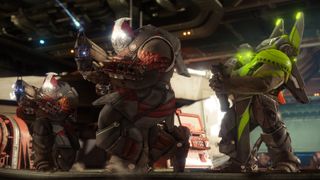
The civilization: The Holy Roman Empire
What makes them so similar?
This one is fairly obvious. The Cabal have an almighty empire which they want to reach every corner of the universe. It wouldn’t be too much of an exaggeration to say that if the Roman Empire knew about space travel, they’d probably want the same thing. The Roman Empire was focused on ingenious new warfare tactics and aggressive expansion, and the Cabal are identical. Almost every rank is named after Roman military positions, like Legionary, Phalanx (which is actually a fighting formation), Gladiator, and Centurion. Incendior takes its name from the latin for - yes, you guessed it - fire, and a Colossus is a type of particularly large statue often used by the Romans. It’s no coincidence that Ghaul is titled ‘Emperor’ either.
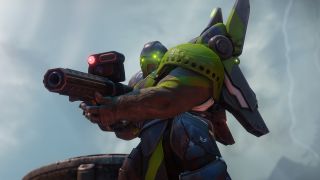
Their skill on the battlefield isn’t the only similarity between the Romans and the Cabal. Know thy enemy is one thing, but for the Roman empire that simply wasn’t enough. They actively sought to learn from their enemies’ cultures, often adopting local bureaucracies and merging them with their own civil service. The Cabal are no different. Ok, so there might not be Cabal sitting behind desks with forms piled up either side of them, but they have the same fascination with other civilisations. These aliens have a thirst for knowledge, leading them to actively seek out the Vex to try and learn from their advanced technology and use it for themselves. It’s also why they’re assaulting the City, because the Traveler is one piece of tech they just can’t do without. But if you’re reading this, you probably know how Ghaul’s attempt at conquest ends.
What the future holds:
Thanks to Destiny 2’s main storyline we’ve already seen that the Cabal’s hunger for an ever-expanding Empire ends up with them storming the Traveler and some gallant Guardian (psst, that’s you) saving the day. Perhaps after such a humiliating defeat learning from other species becomes the central goal. We awake in a cell with one glass wall, as we’re observed day in, day out, put through rigorous tests, quizzed on our history… and with every question, the Cabal learn more and more. Gradually their culture alters until they have the perfect combination of Hive, Vex, Human, Exo, Awoken, and Fallen technology. Then it’s our job to make all that come crushing down. Well, someone’s got to do it.
Hive
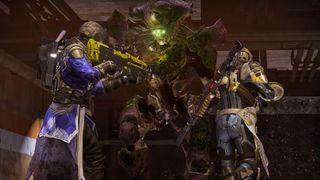
The civilization: Feudal Europe and high fantasy
What makes them so similar?
Meant to look like the royal undead, the Hive are based on a complex mixture of worship and feudal tithes (an old-timey word for tax that the Hive pay to their parasites… with death instead of money. But more on that later). Although only the Acolyte class is a direct reference to religion, the entire species revolves around profane rituals and worship of the Darkness that’s half religious, half magic-based. Because of this, most of the different Hive classes are named after the kinds of characters you’d find in feudal high fantasy like Game of Thrones or The Witcher. Thralls were basically slaves, and Knights - well, everyone knows what a Knight was, right? Both Wizards and Ogres are nods to the Darkness-related magic the Hive uses, with latter being a kind of Thrall that’s twisted by dark magic to create something very big and very thirsty for Guardian blood.
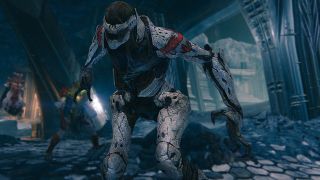
Despite the fact that they might look like they’ve come straight from your nightmares, the Hive don’t just kill us Guardians for the hell of it. They have something called tithes (kind of like a tax) which they need to pay. Each of them are host to a parasitic worm, who they have to feed with these tithes by killing others - or it’ll consume them. Thanks to a hellish ancient pact that created the Hive in the first place, if too many Hive fail in this grim endeavour their Worm Gods will devour the entire Hive species. But it’s not all bad. The Hive’s brand of feudalism has its upside: if they fulfill their quota of deaths, they can take any surplus killing for themselves and (if they get enough) have a chance of evolving into a more powerful class. Thrall becomes Acolyte, Acolyte becomes Wizard or Knight, Wizard/Knight becomes an Ascendant Hive - you get the idea. This grotesque system of feudal tithes is an eerily similar imitation of European medieval society, where peasants would work for landowners in exchange for land, who themselves would be working for the nobility, who would be indebted to the monarch.
What the future holds:
Savathûn, the cunning sister of the Taken King Oryx, one of the founders of the Hive species, and the one who slyly facilitated the Vex’s invasion of the Hive’s realm, is back. No, you haven’t missed a giant Hive boss. If you look closely, on Titan and Io there are hints that she could be about to appear. The Knight leading the new Hive brood on Titan is named Naktal, Fury of Savathûn, and on Io there are Taken that are named after Quria, the Blade Transform that Oryx gave to Savathûn as a gift. Coincidence? I don’t think so. It’s likely that the resurgence of the Hive on Titan is somehow connected to Savathûn.
Fallen
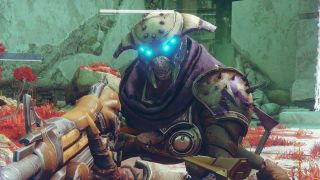
The civilization: Pirates
What makes them so similar?
It’s time to get poignant here: like pirates, the Fallen don’t have a permanent home. They travel from place to place seeking somewhere to start anew - and pillage, kill, and destroy along the way. Usually this kind of behaviour would be no cause for sadness, but what makes it slightly moving - if you forget all that killing - is that the Fallen are relics of a lost civilisation. There’s no clean comparison between a historic civilisation and the Fallen because they’ve evolved into something lawless and nomadic. Hidden in their classes, however, are hints about the noble lives their species once led.
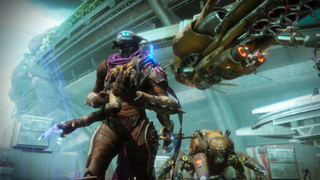
Any Guardian reading this has definitely encountered Dregs, Wretches, Vandals, and Marauders, each name mirroring what some must see as a lack of order amongst the dishonourable Fallen. Unlike the Vex, Hive, or Cabal they’re not masquerading as distinguished fighters: in Guardians’ eyes they’re chaotic, pitiful scavengers. But look at the higher classes and you’ll see Barons, Archons (a Fallen religious leader), Captains, and Kells. These names are reminders of a bygone era. Before their home was hit by a cataclysmic event called The Whirlwind (some think it was an attack by The Darkness), the Fallen had already found The Traveler (which they call The Great Machine) and were living in a golden age. Houses were full of Nobles and led by Kells, presumably acting together in a kind of council to govern as there’s no mention of any monarchs. After the disaster struck, a civil war tore the Fallen apart. Now, like pirates in massive spaceships called Ketches, they loot wherever they go in an attempt to gather enough momentum to win back their lost glory. Anyone seeking to find out what their civilization used to look like before only needs to look at their Servitors and the House banners that you see around Destiny 2’s European Dead Zone.
What the future holds:
Going for the Traveler would seem like the biggest copycat move considering Ghaul’s appearance in Destiny 2, so although it’s is the most obvious, I’m going to sidestep it. Instead imagine if we were teleported to the past using the Vex enigmatic time-jumping abilities and got to see the Fallen civilization before it fell. The Houses in full splendour, parades of Nobles and Kells, banners everywhere… it would all look magnificent. Until they realise that a Guardian has infiltrated their city. But perhaps instead of being the enemy we could witness The Whirlwind happening first hand and fight alongside the Fallen. It’s a long shot, but I’m allowed to dream. Especially if everyone reading this is inside a Vex simulation...
While here at GamesRadar, Zoe was a features writer and video presenter for us. She's since flown the coop and gone on to work at Eurogamer where she's a video producer, and also runs her own Twitch and YouTube channels. She specialises in huge open-world games, true crime, and lore deep-dives.
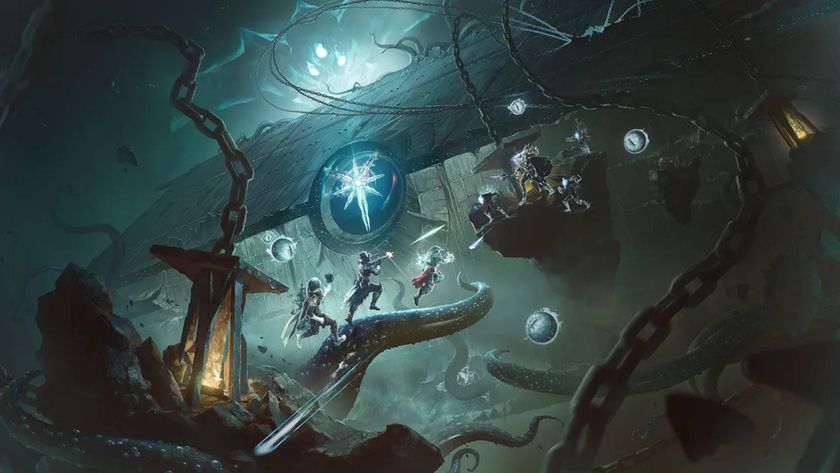
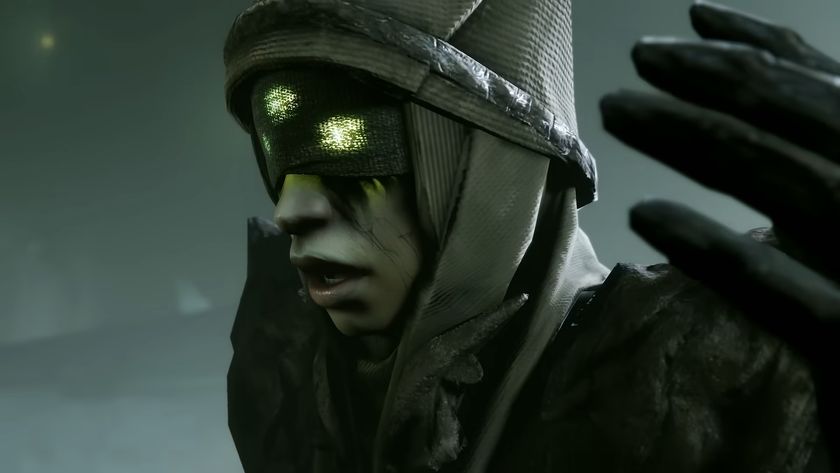
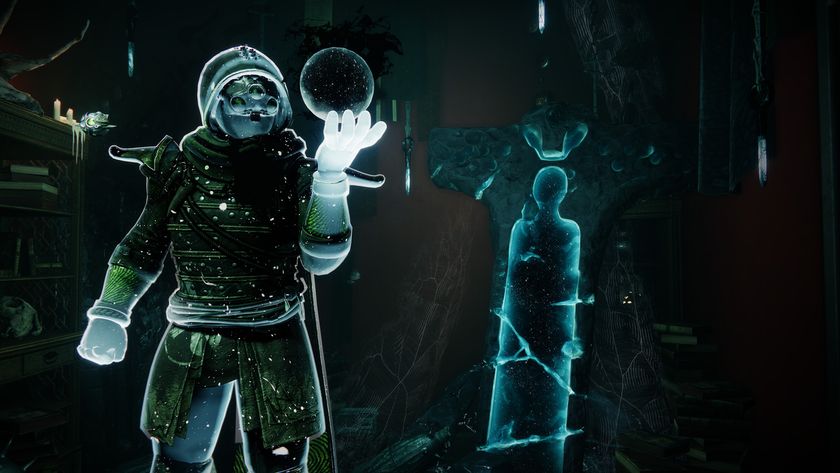
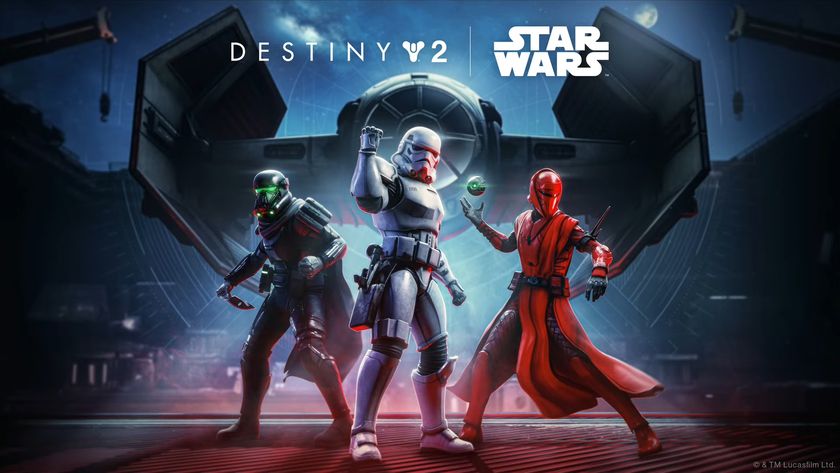
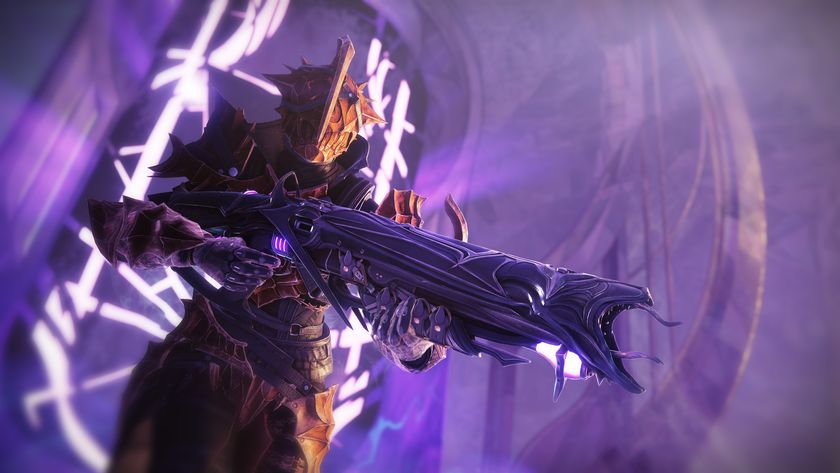
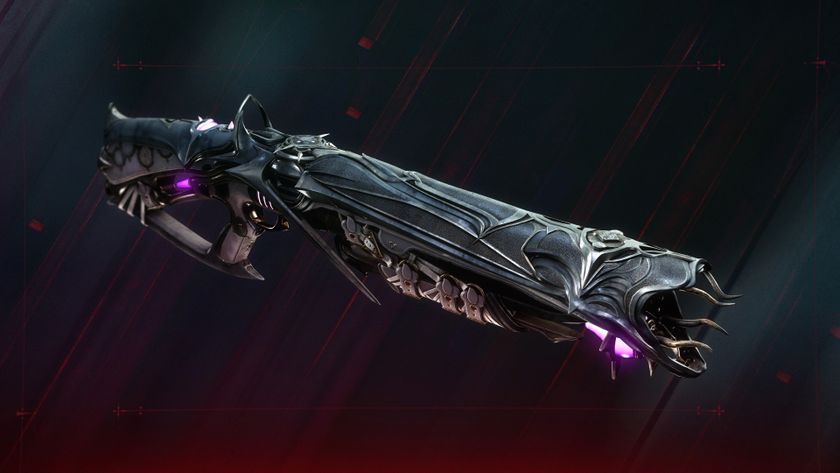







"A fun example of a bug becoming a feature": Destiny 2 accidentally made Exotic Glaives free to all classes, and Bungie says "we're going to let this ride"

Destiny 2's new Episode suggested the upcoming Apollo expansion will launch on July 15, but that date has mysteriously been scrubbed from the game

